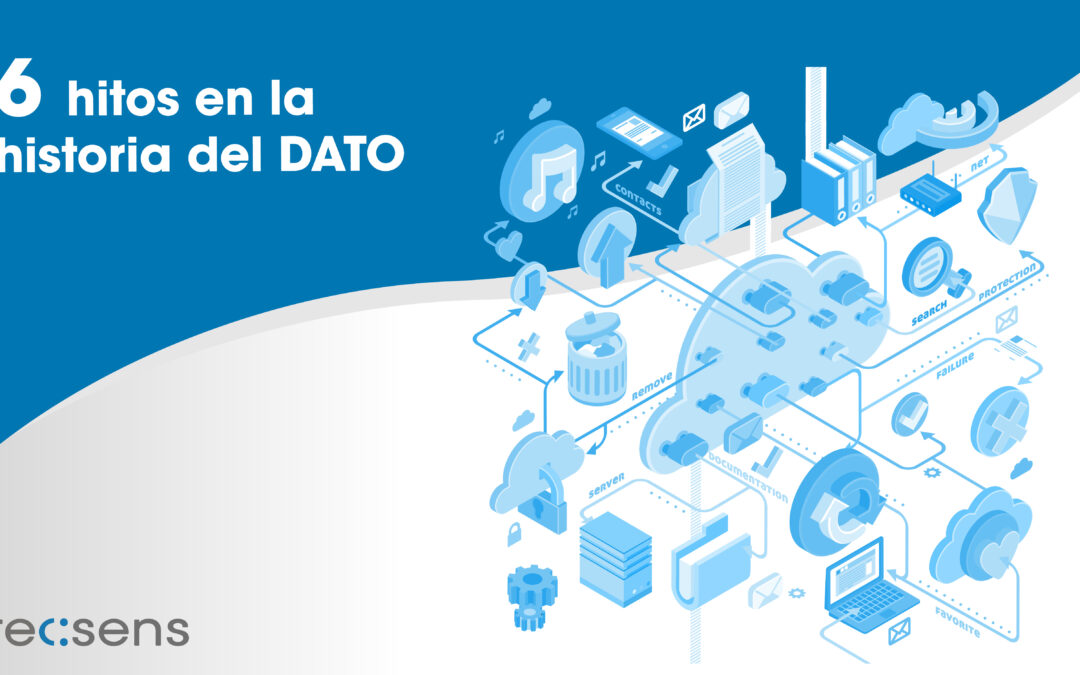The value of personal and business data has increased dramatically over the past two decades due to the proliferation of the Internet, mobile devices, and sensors. Companies use personal data to segment customers and personalize products and services, while data has also become a source of revenue for tech companies that sell data to other companies. In addition, artificial intelligence and machine learning have enabled companies to extract valuable insights from large data sets. We tell you all about the 6 milestones in the history of data.
Data analytics has also enabled companies to extract valuable insights from large amounts of data, further increasing its value. Although the cost of data storage has decreased due to cheaper hardware and increased storage capacity, the costs associated with data protection and privacy have increased.
6 important milestones in the history of DATO
In the last 20 years, there have been several important milestones in the history and evolution of data.
Launch of Google in 1998,
It contributed to the increase in the amount of data available online and the increase in its value.
Launched Facebook in 2004,
It allowed companies to better segment consumers and personalize their products and services.
EU General Data Protection Regulation (GDPR) in 2016,
The approval of this had a major impact on the way companies manage and protect personal data.
Facebook and Cambridge Analytica data breach in 2018,
This data breach made people aware of the amount of personal data that is collected and used by companies. Which led to increased scrutiny and regulation of data privacy.
The COVID-19 pandemic in 2020,
It has led to a Increased use of data and technologies for contact tracing and tracing the spread of the virus, as well as a Increased use of telemedicine and teleworking, which has increased the amount of data and the need to protect it properly.
The ramsonware,
It is a form of malware that encrypts an organization’s data and demands a ransom in exchange for the decryption key. This has led to a more comprehensive approach to data protection, including more advanced security measures to prevent malware infections, the implementation of incident response plans, and the use of backups and disaster recovery solutions to protect critical data. The impact of ransomware on data protection has been enormous, perhaps one of the most relevant milestones in its history.
In short, personal and business data have acquired great value in today’s digital economy, and this value is expected to continue to increase in the future. It’s important for businesses and consumers to be aware of the risks and opportunities associated with data.




